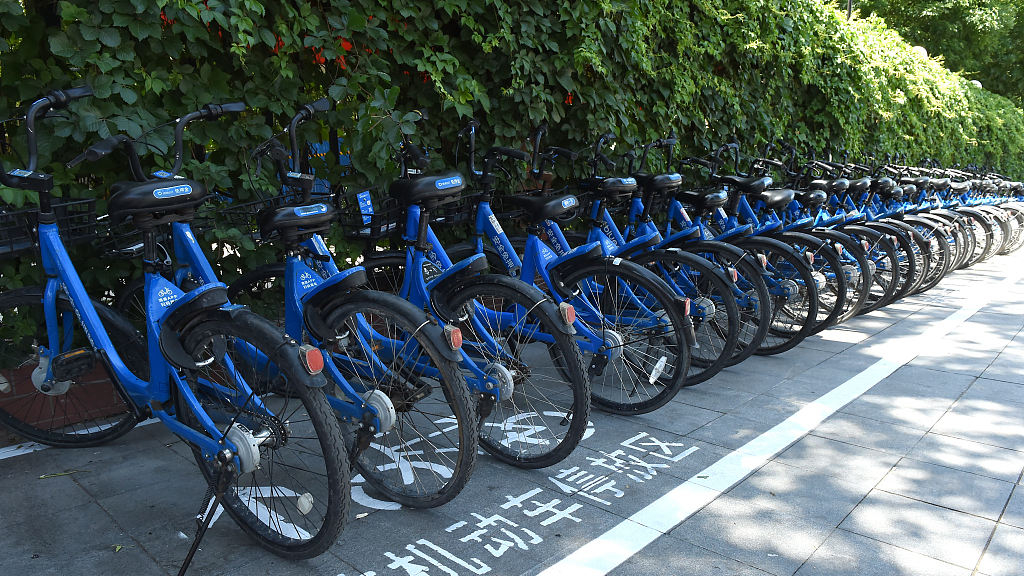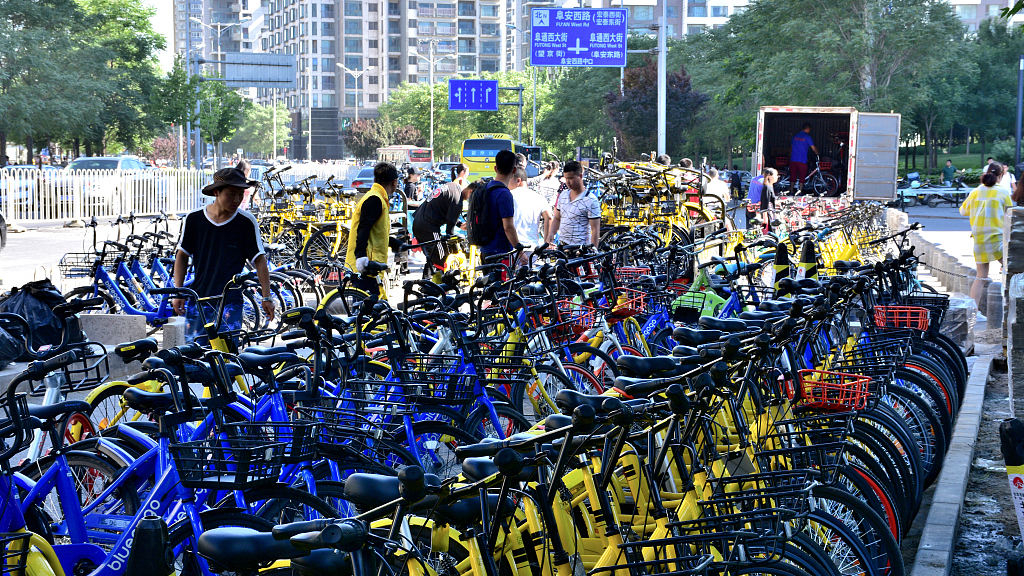
Money Stories
22:05, 04-Jun-2019
Why China's bike-sharing industry is upping fees for its users
Updated
22:44, 04-Jun-2019
Chen Xiaoshu
02:37

Shared biking is described as the best way to solve the so-called last-mile problem for Chinese commuters. However, the country's nascent bike-sharing industry hasn't had a smooth ride to date – fierce competition, decreasing profit margins and bankruptcies have put paid to the hopes of many in the business. So where do the ones that have survived turn to for a model that generates profit? Well, some have decided it's time for their customers to pay more.
A universal price hike across China's bike sharing companies has become the norm. Take HelloBike, a startup in this sector as an example. Its users used to pay one yuan or about 15 U.S. cents for a half-hour ride, now they only get 15 minutes for the same price. It seems the days of getting a short bike-ride for a small fee are gone.
"In the past, people could use the shared bikes by just spending a little money. Businesses competed with each other by providing subsidies to consumers. However, if they continued following this money-burning path, no one could survive. In the end, there would be no bicycle to ride. Only by entering the healthy competition stage can the bike-sharing industry return to the normal development path," said Liu Xingliang, dean of the Data Center at China Internet.
Bike-sharing companies have invested a lot to better serve their customers, and this decision isn't simply based on a hope and a prayer.

VCG Photo
VCG Photo
"Before the price adjustment, we used big data for analysis. It showed a price rise would not influence over 70 percent of our users," said Zhou Wei, head of Hangzhou business unit owned by HelloBike. But he admitted it does obviously affect customers in different ways.
Some riders said that doesn't bother them and they understand the intention behind the price adjustment. They held companies need funds for further operations.
Some industry experts, however, seem to be skeptical about the strategy.
"I don't think this is a clear profit model. In the past, deposits from consumers were used for the cash flow of the businesses. Now they don't collect deposits any longer but raise usage fees. Some consumers may, in turn, give up using the bikes. So I think the final result may be contrary to their initial expectations," said professor Wu Weiqiang from Institute of Political Science & Public Administration at the Zhejiang University of Technology.

VCG Photo
VCG Photo
The industry experienced periods of boom and decline over the past two years. During the good times, domestic bike-sharing companies even began to sketch out plans for overseas expansion. However, most couldn't cope with the fierce competition, such as Xiaoming Bike, Robin Bike and King Bike, all of which went bankrupt.
Last April, Mobike was acquired by China's largest provider of on-demand online services, which had been widely regarded as a turning point for the industry before it revealed net losses of nearly 60 million U.S. dollars a few days later.
The question is: Will the price-hike gamble pay off?

SITEMAP
Copyright © 2018 CGTN. Beijing ICP prepared NO.16065310-3
Copyright © 2018 CGTN. Beijing ICP prepared NO.16065310-3